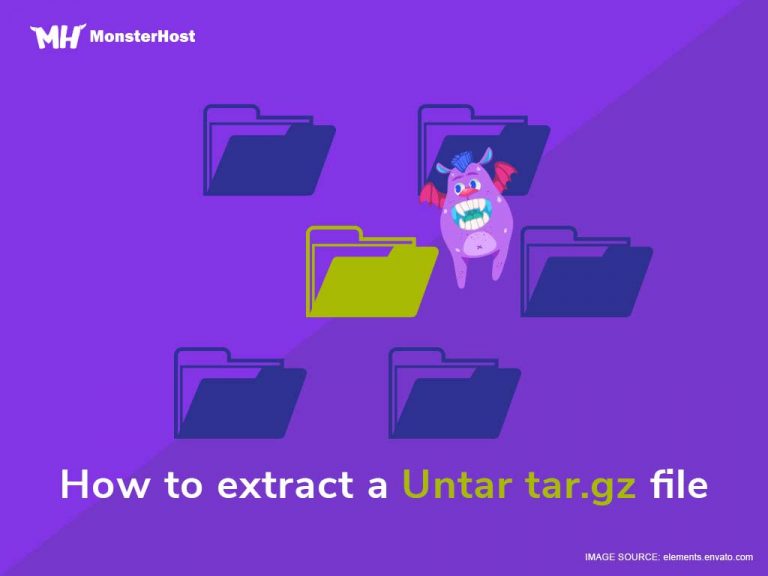

- #Untar tar file linux how to
- #Untar tar file linux install
- #Untar tar file linux archive
- #Untar tar file linux code
- #Untar tar file linux windows
The bz2 is another popular compression format where tar can be compressed with it. In the following example, we extract the tar.gz file. The tar files can be compressed with the gzip as gz format.
#Untar tar file linux how to
In the tutorial, we examine how to untar files with different compressions algorithms like gz, bz2 etc.

The most important function of the tar format is the ability to store multiple files and directories as a single file where it can be easily compressed. The tar format is used with different compression algorithms like gz, bz2, etc.
#Untar tar file linux archive
Adding that sort of check is left as an exercise for the reader.The *.tar is a popular archive format used to compress files in Linux and Unix operating systems.

This won't help if a file is specified in the archive with an absolute path (which is normally a sign of malicious intent). One partial solution would be to automatically create a new directory to extract into: for f in *.tar do If both a.tar and b.tar contain the same file and try to extract it at the same time, the results are unpredictable.Ī related issue, especially when taking archives from an untrusted source, is the possibility of a tarbomb. More troubling, you may end up with a corrupted copy of the file if you try this "clever" optimization: for f in *.tar do Since tar overwrites files by default, the exact version of the file you end up with will depend on the order the archives are processed. The most obvious is that a particular file name may be included in more than one tar file. A warningīlindly untarring a bunch of files can cause unexpected problems. If you are a Perl programmer, for instance, take a look at the Archive::Tar module. The format is straightforward and many programming languages have libraries available to read tar files. Finally, the truly dedicated programmer could easily write an tar replacement that works exactly as desired. One approach is to use a shell for loop: $ for f in *.tar do tar xf "$f" doneĪnother method is to use xargs: $ ls *.tar | xargs -i tar xf Īlternatively, you can use one of a number of alternative tar file readers. Passing just one filename to tar xf will extract all the archived files as one would expect. It's too late rewrite tar to accept multiple archive files as input, but it's not too hard to work around the limitation.įor most people, running tar multiple times for multiple archives is the most expedient option. tar xf file.tar - to uncompressed tar file (.tar) tar xC /var/tmp -f file.tar - to uncompress tar file (. tar.gz) tar xjf 2 - to uncompress a bzip2 tar file (.tbz or. Tar: Exiting with failure status due to previous errors Steps Type at the command prompt tar xzf - to uncompress a gzip tar file (.tgz or. Meanwhile, GNU tar returns 2 and spams STDERR even with the verbose option off: tar: b.tar: Not found in archive
#Untar tar file linux code
Annoyingly, the Solaris version of tar does not report any problems either in the return code or with the verbose option ( v). Unless a.tar contains a file named b.tar, the tar command has nothing to do and exits quietly. So if there are two *.tar files (say a.tar and b.tar) your command would expand to: $ tar xf a.tar b.tar
#Untar tar file linux install
tar.gz tar file linux tar.gz extract extract tar install tar files on linux extract tar.
#Untar tar file linux windows
So for tar extraction (the x option), the first file passed would be the archive and all other files would be the files to be extracted. uncompress tar how to unzip Tar file tar unpack linux unpack tar.gz file extract tar untar tar.gz tar gz linux command linux tar gz extract tar files in windows How to create and extract an archive or. The first file or directory passed was assumed to be the device that held the archive in question and any other files or directories where the contents of the archive to be included in the operation. Fastest way to extract tar.gz Ask Question Asked 12 years, 1 month ago Modified 1 year ago Viewed 76k times 60 Is there anyway to extract a tar.gz file faster than tar -zxvf filenamehere We have large files, and trying to optimize the operation. Since it only made sense to execute tar on one device at a time, the syntax was designed to assume one and only one device. Originally, the tar command was intended for use with magnetic tape devices.


 0 kommentar(er)
0 kommentar(er)
